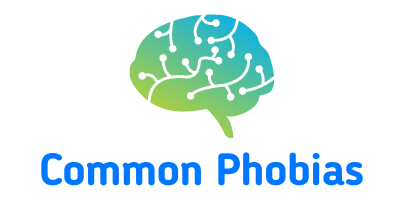Phobias
What are Phobias?
A phobia is a strong, persistent fear of situations, objects, activities, or persons. The main symptom of this disorder is the excessive, unreasonable desire to avoid the feared subject. Phobias are believed to be developed by heredity, genetics and brain-chemistry combine with life-experiences.
Types of Phobias
Specific Phobia
Fears of certain objects or situations. Specific phobias usually contain specific panic triggers, such as spiders, snakes, elevators, or flying. These fears develop during childhood and tend to go away, for example, the fear of the dark. If the fear continues through to adulthood, treatment would be the only solution. These fears can keep people from having a normal life, depending on how often they must encounter/avoid the fear.
Social Phobia
Fear of any kind of social situation which involves other people e.g. walking down the street; standing in a queue; visiting a restaurant; attending meetings, giving a speech, etc. People with these phobias tend to avoid the situations they fear.
Agoraphobia
Fear of experiencing a panic attack in a place or situation from which escape may be difficult or embarrassing or they cannot obtain help. People with this phobia may fear being alone, being in a crowd, flying, being in an elevator. Agoraphobia is the only phobia regularly treated as a medical condition.
Blood/Injury Phobia
Fear of the sight of blood; injections; blood pressure measurement; surgery; fear of the doctor or dentist.
Claustrophobia
Fear of enclosed spaces such as elevators, buses, trains, cinemas, theatres.
List of Phobias A-Z
Phobias That Start With A
- Ablutophobia - Fear of Showering Or Bathing
- Acarophobia - Fear of Itching From Insect Bites
- Acerophobia - Fear of Sourness
- Achluophobia - Fear of Darkness
- Acousticophobia - Fear of Noise
- Acrophobia - Fear of Heights
- Aeroacrophobia - Fear of Open High Places
- Aeronausiphobia - Fear of Vomiting Due To Airsickness
- Aerophobia - Fear of Air, Wind, Swallowing Air, Or Airbourne Substances
- Agateophobia - Fear of Insanity
- Agliophobia - Fear of Pain Or Suffering
- Agoraphobia - Fear of Experiencing A Panic Attack
- Agraphobia - Fear of Sexual Abuse
- Agrizoophobia - Fear of Wild Animals
- Agyiophobia - Fear of Busy Streets
- Agyrophobia - Fear of Streets Or Crossing The Street
- Aichmophobia - Fear of Needles
- Ailurophobia - Fear of Cats
- Akousticophobia - Fear of Sound
- Albuminurophobia - Fear of Kidney Disease
- Alektorophobia - Fear of Chickens
- Algophobia - Fear of Pain
- Alliumphobia - Fear of Garlic
- Allodoxaphobia - Fear of Opinions
- Altophobia - Fear of Heights
- Amathophobia - Fear of Dust
- Amaxophobia - Fear of Riding In A Car
- Ambulophobia - Fear of Walking
- Amnesiophobia - Fear of Amnesia
- Amnesiphobia - Fear of Amnesia
- Amychophobia - Fear of Scratches
- Anablephobia - Fear of Looking Up
- Ancraophobia - Fear of Wind
- Androphobia - Fear of Men
- Anemophobia - Fear of Air Drafts
- Anginophobia - Fear of Angina, Choking, Or Narrowness
- Anglophobia - Fear of England Or English Culture
- Angrophobia - Fear of Anger
- Ankylophobia - Fear of Immobility Of A Joint
- Anthophobia - Fear of Flowers
- Anthropophobia - Fear of People Or Society
- Anthropophobia - Fear of Fear Of People Or Society
- Antlophobia - Fear of Floods
- Anuptaphobia - Fear of Staying Single
- Apeirophobia - Fear of Infinity
- Aphenphosmphobia - Fear of Being Touched
- Apiophobia - Fear of People With Amputations
- Arachibutyrophobia - Fear of Peanut Butter Sticking To The Roof Of The Mouth
- Arithmophobia - Fear of Numbers
- Arsonphobia - Fear of Fire
- Asthenophobia - Fear of Fainting Or Weakness
- Astraphobia - Fear of Thunder And Lightning
- Asymmetriphobia - Fear of Asymmetrical Things
- Ataxiophobia - Fear of Muscular Incoordination
- Ataxophobia - Fear of Disorder Or Untidines
- Atelophobia - Fear of Imperfection
- Atephobia - Fear of Ruins
- Athazagoraphobia - Fear of Fear Of Being Forgotten Or Ignored
- Atomosophobia - Fear of Atomic Explosions
- Atychiphobia - Fear of Failure Or Failing
- Aulophobia - Fear of Flutes
- Aurophobia - Fear of Gold
- Auroraphobia - Fear of Northern Or Auroral Lights
- Autodysomophobia - Fear of One That Has A Vile Odor
- Automatonophobia - Fear of Human-Like Figures
- Automysophobia - Fear of Being Dirty
- Autophobia - Fear of Being Alone
- Aviophobia - Fear of Flying
Phobias That Start With B
- Bacillophobia - Fear of Microbes, Bacilli, Or Germs
- Bacteriophobia - Fear of Bacteria
- Ballistophobia - Fear of Missiles Or Bullets
- Barophobia - Fear of Gravity
- Basiphobia - Fear of Not Being Able To Stand And Walk
- Basophobia - Fear of Not Being Able To Stand And Walk
- Bathmophobia - Fear of Fear Of Stairs Or Steep Slopes
- Bathophobia - Fear of Depth
- Batophobia - Fear of Heights Or Being Close To High Buildings
- Batrachophobia - Fear of Amphibians
- Belonephobia - Fear of Pins And Needles
- Bibliophobia - Fear of Books
- Blennophobia - Fear of Slime
- Bogyphobia - Fear of Bogeyman
- Bolshephobia - Fear of Bolsheviks
- Botanophobia - Fear of Plants
- Bromidrophobia - Fear of Body Smells
- Bromidrosiphobia - Fear of Smelling Bad
- Brontophobia - Fear of Thunder And Lightning
